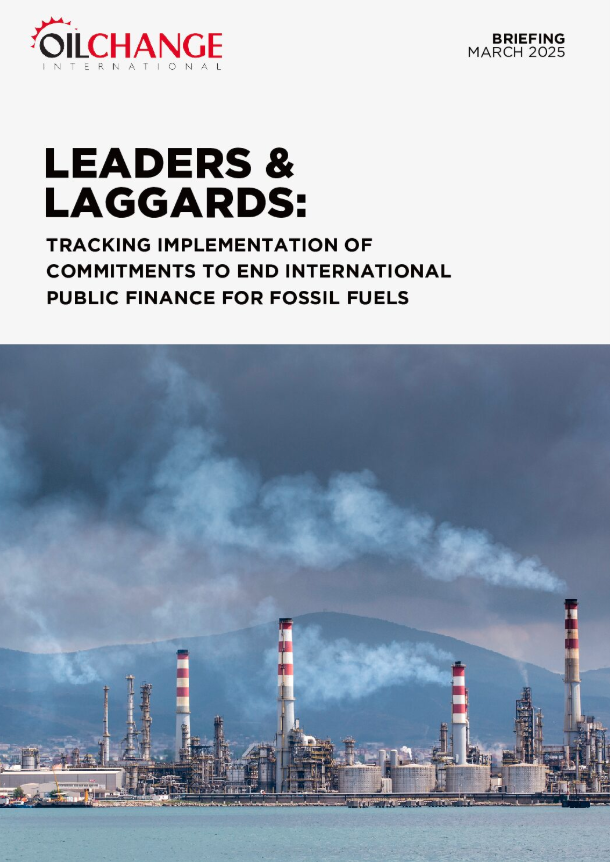
Briefing
Leaders & Laggards: Tracking implementation of the COP26 commitment to end international public finance for fossil fuels by the end of 2022
Published by: Oil Change International
*Updated March 2025* At the UN COP26 climate conference, signatories of the Clean Energy Transition Partnership (CETP) agreed to international public finance for fossil fuels. This briefing, which will be updated regularly as new policies come out and new signatories join the commitment, tracks implementation efforts and assesses whether countries are on track to keep their promise.
Download the implementation tracker briefing (PDF)
Updated March 2025
- Eleven out of seventeen high-income CETP signatories with significant amounts of international energy finance have policies that end fossil fuel support. Four have violated their pledge by financing new fossil fuel projects since the deadline passed.
- Norway and Australia have published policies ending taxpayer finance for international fossil fuel projects, fulfilling their CETP promise.
- Spain graduates to a leader for the first time, after publishing a policy for CESCE, the government export credit agency, that ends fossil fuel finance in line with the CETP agreement.
- Sweden has closed a gas power loophole in its export finance policy that could have allowed support for oil and gas extraction.
- The United States left the CETP in February 2025. The Biden Administration joined in 2021, but struggled to ensure compliance by US EXIM, the US’s export credit agency, which claimed the commitment did not apply to them. The US remains bound by a near-identical G7 commitment to end fossil fuel finance. Financial analysts say that the policies of the Trump Administration will not stop the energy transition.
- The EU Commission recently proposed new investments in Liquefied Natural Gas (LNG), which would risk undermining the progress its Member States have made in restricting fossil fuel finance.
This briefing, regularly updated here, tracks implementation efforts and assesses whether countries are on track to keep their stop funding fossils promise.

